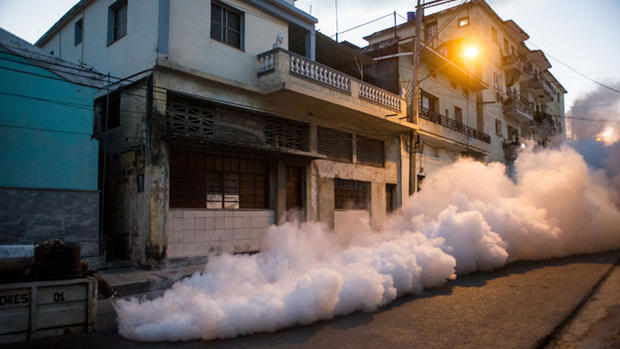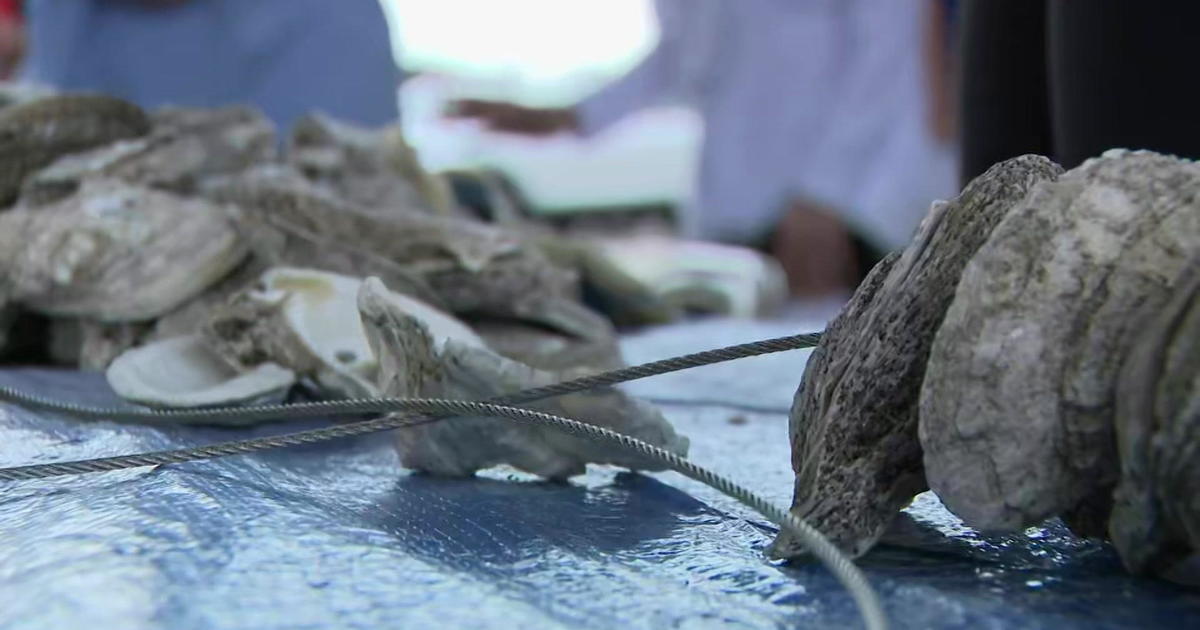Zika Virus Hits Cuba As Researchers Fight Back With New Weapon
Follow CBSMIAMI.COM: Facebook | Twitter
HAVANA, Cuba (CBSMiami/AP) — Cuban state media has announced that they have detected the first case of the Zika virus inside the country, ending Cuba's status as one of the last nations in the hemisphere without domestic cases of the disease that has been linked to birth defects.
Officials said a 21-year-old Havana woman who had not traveled outside Cuba was diagnosed with the virus after suffering headaches, fatigue and other symptoms. On Monday, her blood tested positive for Zika. She remains hospitalized.
Cuba had previously reported a handful of cases of the disease in people who had traveled to countries with outbreaks of the mosquito-borne virus, particularly Venezuela, and appeared to have contracted it there.
Zika is being investigated as a possible agent in cases of microcephaly, a condition in which babies are born with unusually small heads and brain damage, and also in cases of Guillain-Barre, a rare condition that sometimes results in temporary paralysis.
Cuba has thrown more than 9,000 soldiers, police and university students into an effort to fumigate for mosquitoes, wipe out the standing water where they breed and prevent a Zika epidemic.
President Raul Castro has called on the nation to battle lax fumigation and trash collection, turning the Zika fight into a test of the communist government's once-legendary ability to marshal the entire country behind efforts ranging from civil defense to bigger sugar harvests to disease prevention.
In recent days the streets of Havana have been crisscrossed by teams of green-clad soldiers fumigating houses with mosquito-killing fog. Residents of the capital say fumigators no longer accept excuses of allergies or requests to spray some other day, as frequently happened in the past.
Researchers in New Mexico believe they have discovered a method to keep the virus from spreading -- and it's found in just about everyone's kitchen.
The concoction's main ingredient is oil from lemongrass leaves. Scientists mix the oil with sugar, yeast and heat to create a microscopic donut irresistible to mosquito larvae.
"They've eaten the particles, digested them, and died as a result," said Dr. Scott Matthews at the University of New Mexico Health Sciences Center.
The oil shuts down the nervous, digestive and respiratory systems, killing the hungry larvae in about five days.
It's considered safe for people and the environment, unlike the pesticides being used to kill mosquitoes in countries like Brazil.
"We're trying to package it so that we can get it to where we want it to go and not pollute the whole environment," said Dr. Ravi Durvasula.
They hope to test the donuts in mosquito breeding pools in South America later this year.
(TM and © Copyright 2016 CBS Radio Inc. and its relevant subsidiaries. CBS RADIO and EYE Logo TM and Copyright 2016 CBS Broadcasting Inc. Used under license. All Rights Reserved. This material may not be published, broadcast, rewritten, or redistributed. The Associated Press contributed to this report.)




